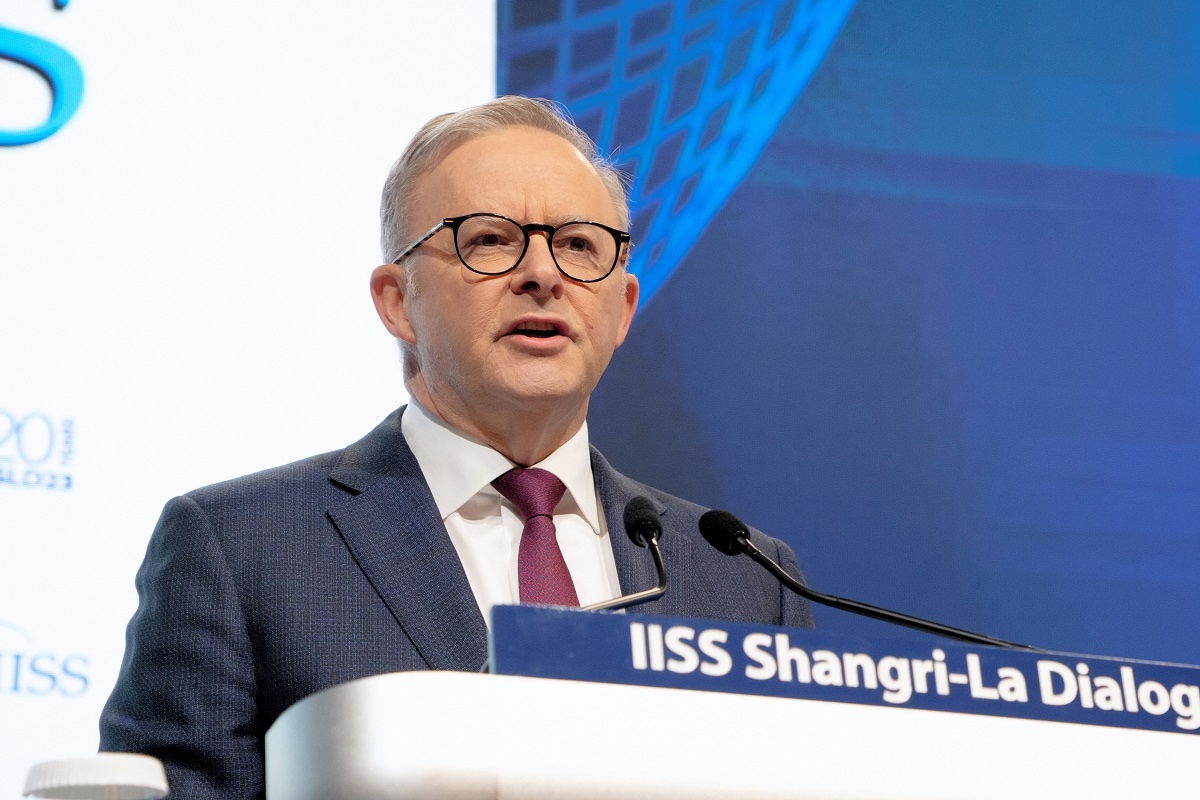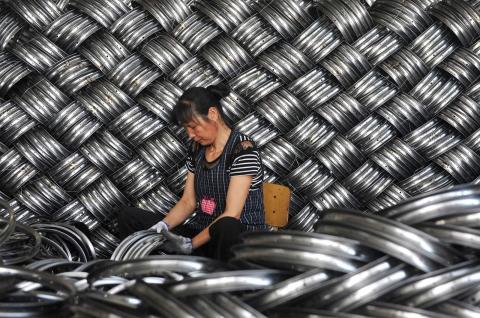Risky business
For the leader-in-waiting from a small, risk averse country, Singapore’s Deputy Prime Minister Lawrence Wong was remarkably quick last month to smack down the flagship agreement from the Group of Seven summit.
The unusually broad and assertive summit communiqué said the rich country club had agreed to adopt a policy of de-risking rather than decoupling from China as part of a wider process of economic resilience and reduction of excessive dependencies in critical supply chains.
It appeared to be a compromise between the growing embrace of the idea of a hard decoupling from China in the United States and the decision by European Commission President Ursula von der Leyen to use the word de-risking to signal a tougher European approach before a visit to China in April. The European approach seemed to recognise that in practice, decoupling from the world’s second-largest economy would be much harder to do for businesses, and countries such as Australia, than its advocates appreciated.
But Biden administration National Security Adviser Jake Sullivan provided the crucial bridge over this rhetorical divide in his headland speech on the administration’s big-spending new interventionist industrial policy on 27 April. He tactically embraced the language of de-risking in contrast to decoupling while nevertheless carefully fleshing out the raft of new American approaches, from the CHIPS and Science Act to the Indo-Pacific Economic Framework that used to amount to a roadmap for decoupling.
But Sullivan’s switch has only highlighted the lexicon of D-words now being deployed by various interests to skirt around the challenge of dealing with an increasingly assertive China. And that includes China itself, which to some extent started this battle with the launch of its inward-looking dual circulation economy three years ago.
Singapore says
Wong’s response was striking because it came just days after US President Joe Biden had claimed “the G7 and beyond” were now “united in our approach” to China by de-risking. It was also even delivered in G7 host country and regular Singapore interlocutor Japan.
And it came as China responded tartly to the communiqué by calling in Japan’s ambassador to complain that this new language still amounted to containment of Chinese growth.
Wong, who is also finance minister and has been acting recently as prime minister ahead of eventually actually taking the job, told the Future of Asia Forum:
It is hard to see how de-risking, at its current ambition and scale, can be strictly confined to just a few strategic areas without affecting broader economic interactions.
If de-risking is taken too far, it would prompt reactions and unintended consequences. Over time, we will end up with a more fragmented and decoupled global economy.
Rather than provide a new unity ticket on China as Biden claimed, Wong’s swift response to the G7 position seems to have become the opening shot in a volley of blunter warnings about the Biden administration using new language for old ends.
International Monetary Fund Chief Economist Pierre-Olivier Gourinchas has restated his institution’s concerns about economic fragmentation since the G7 statement, saying: “There is a danger that [the] global economy could fragment into blocks. They would have their own trade patterns, payment systems, and technology standards, and they would not be engaged with other blocks.”
The Peterson Institute for International Economics’ Gary Hufbauer argues, “Sullivan’s words conveyed no call for US leadership in building a rules-based trading system respecting market principles.”
And the Brookings Institution’s Paul Gewirtz says, “The word de-risking is extremely ambiguous and its meaning uncertain. The word itself tells us very little about China policy … Very likely, different countries will interpret and apply [it] differently.”
And Gideon Rachman writes in the Financial Times, “talking to American allies – both in the G7 and outside it – it is evident that there is still uneasiness about US policy.”

Diversifying down under
The global debate about how different de-risking really is to decoupling has only made the Australian government’s contribution to this manoeuvring over how to restrain China more interesting.
Prime Minister Anthony Albanese scored several headlines after the G7 communiqué for specifically endorsing de-risking from China. But a closer look at what he actually said suggests his government is being more careful about joining the de-risking pile-on as it tries to rebuild a more productive relationship with Beijing after its series of trade impediments.
Asked whether he endorsed G7 concerns about the behaviour of China, he replied, “I support the G7 communiqués about the international relations that we have there, also about Ukraine and the support for President Zelensky who will be here today.”
Asked to clarify again, he said, “We have said for some time that China's activity, and we expressed concern for ourselves as well, the chafing of one of our aircraft, the other activities that we’ve seen has provided concern.”
Make of that word salad what you like. But the de-risking from China language has noticeably not been used in recent major statements by Australian ministers responsible for foreign strategic and economic policy despite Biden’s assertion of a united approach. It looks just too rhetorically risky as Albanese mulls a visit to Beijing.
The prime minister’s much promoted speech at the security focused Shangri-La Dialogue at the weekend only used the word “risk” twice, with no mention of the G7’s de-risking policy at all. It was the same approach when he met both the de-risking sceptic Wong in a Singapore bilateral meeting and the more China-concerned Vietnamese leadership in Hanoi. The Shangri-La speech was almost punctuated with the need for dialogue, one of Australia’s increasingly favoured D-words.
But the prize for the most disciplined de-risking of the combustible China relationship by the Australian government goes to Trade Minister Don Farrell who has had the much less abrasive word “diversify” seemingly embedded at the top of his speaking notes since he took office.
He did a masterclass on the subject in his first National Press Club speech last week, declaring how important China was as Australia’s biggest trading partner while talking up diversification much more enthusiastically.
And while the world might be looking into a chasm threatened by both dual circulation and decoupling, Farrell was still speaking the language of dialogue.

